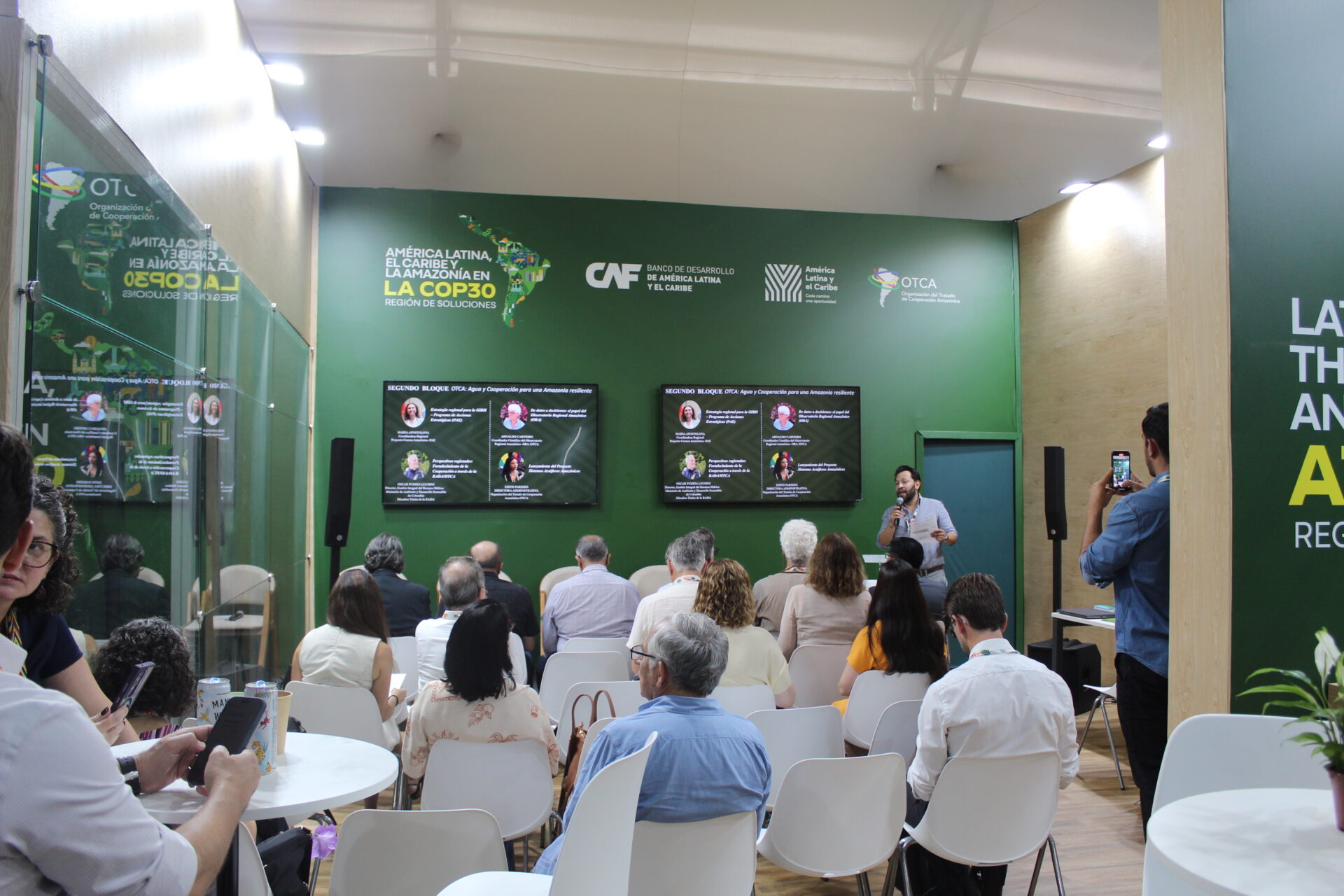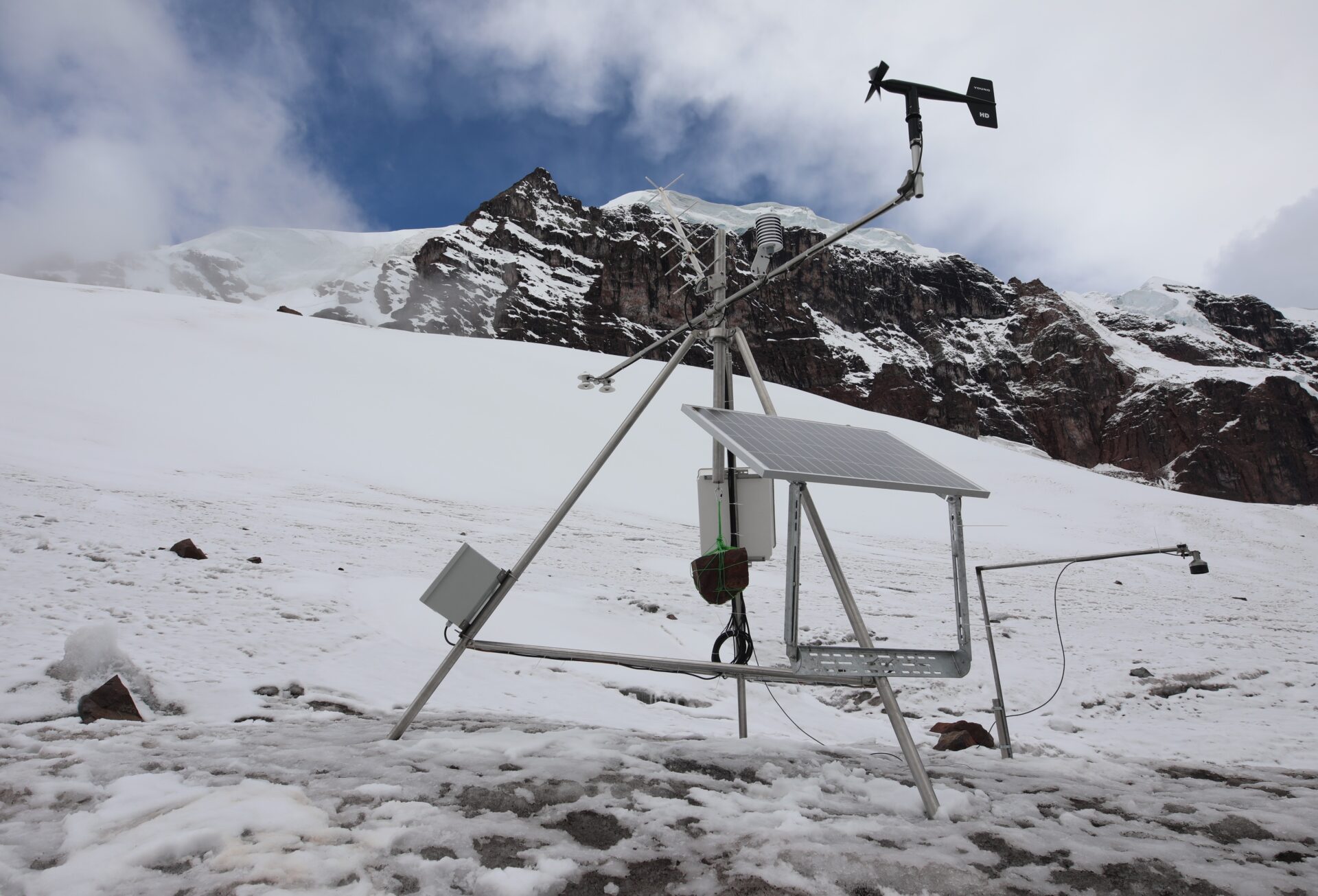The National Coordination Units of the Amazon Basin Project (NPCUs) met on September 6 in a videoconference with over 40 participants to discuss regional capacity-building actions for Integrated Water Resources Management (IWRM) in the Amazon Basin and the development of the Integrated Regional Information Platform on IWRM in the region. The NPCUs are responsible for the activities and implementation of the Amazon Basin Project’s interventions in the eight Amazonian countries.
The regional coordinator of the Amazon Basin Project, Maria Apostolova, opened the meeting by informing participants of the planned activities for the last quarter of 2024, highlighting the upcoming II Meeting of the Amazon Network of Water Authorities (RADA), scheduled for October, as well as training sessions on the Source-to-Sea Approach, IWRM Toolbox, and Amazonian Hydrology, among others. The RADA Network, established on April 17, will formalize the approval of its regulations and define the 2024-2025 Work Plan. During the event, the Regional Coordination Unit (RCU) of the Amazon Basin Project will present water monitoring protocols developed by the Amazon Cooperation Treaty Organization (ACTO) for the Amazon Hydrological Network (RHA) and the Water Quality Network (RQA).
IWRM Training
One of the main points of the NPCUs meeting was the presentation of the training program proposal that the Amazon Basin Project will offer to institutions and water authorities on water management tools. As explained by consultant Luiz Amore, the training will focus on the “Source-to-Sea” and “IWRM Toolbox” approaches to provide participants with a regional view of Integrated Water Resources Management of the Amazon Basin, from the Andes to the Atlantic.
The goal is to contribute to the creation of a reference toolbox for IWRM in the Amazon Basin based on the tools developed by the Global Water Partnership (GWP Toolbox) and other integrated approaches. This way, countries can develop their National Action Plans (NAPs), aligning national policies, regulations, and legal frameworks with regional IWRM strategies, considering countries’ goals and objectives within the scope of major international environmental, climate, and sustainable development conventions and agreements.
This training represents a crucial milestone for addressing the challenges posed by climate variability and change in the Amazon. Through it, the Amazon Basin Project seeks to promote a leap forward in the management of shared water resources in the Amazon Basin.
The training cycle, offered in both in-person and online modalities, will begin in October and continue through December of this year, with the aim of training over 300 professionals across the eight Amazonian countries.
Integrated Regional Information Platform on IWRM in the Amazon Basin
Another highlight of the V Meeting of the NPCUs was the presentation of progress in developing the technological platform that will support countries in managing data and information related to the implementation and sustainability of the Integrated Water Resources Monitoring System of the Amazon Basin.
In this regard, consultant Naziano Filizola explained that part of the process involves promoting the alignment of national water management policies with the new platform, as well as the incorporation of interoperable technical monitoring standards into national systems to ensure that the collected data is accurate and useful.
The Project’s technical team will work directly with national entities responsible for generating water resource data to better understand the strengths and weaknesses of their hydrological monitoring systems and identify opportunities for improvement.
The development of the Integrated Regional Information Platform on IWRM in the Amazon Basin (PI/GIRH) also includes technical training for the autonomous operation of the platform, allowing countries to coordinate their actions in managing transboundary water resources.
Amazonian Hydrology Course
Another initiative of the Amazon Basin Project to enhance the collection and analysis of water data is the Amazonian Hydrology Course, which will be held in the city of Novo Airão, in the Brazilian Amazon, from October 7 to 13. The course aims to train participants in techniques and practices related to hydrometry and hydrological monitoring, offering an in-depth view of the processes governing the Amazon Basin, as well as providing an understanding of the operation of the PI/GIRH.
To strengthen the technical skills of professionals involved in the region’s water resource management, the course will transfer the knowledge accumulated by the international team that has developed the HYBAM Observation Service in the Amazon over the past 20 years, focusing on the study of the water cycle, hydrology, and geochemistry of the world’s largest river basin.
Related news
Post
Virtual course presents the potential of cloud data analysis for Amazonian water resource management
5 de February de 2026
As part of the Amazonian Training Plan for Integrated Water Management, from the Amazonian Network of Water Authorities (RADA), the [...]
Post
28 de November de 2025
Water is the central element through which most of the impacts of climate change manifest themselves: more intense droughts, extreme [...]
Post
27 de November de 2025
Four glaciological, meteorological, and hydrometric monitoring stations have been installed in the Vilcanota and Carabaya mountain ranges in southern Peru [...]




